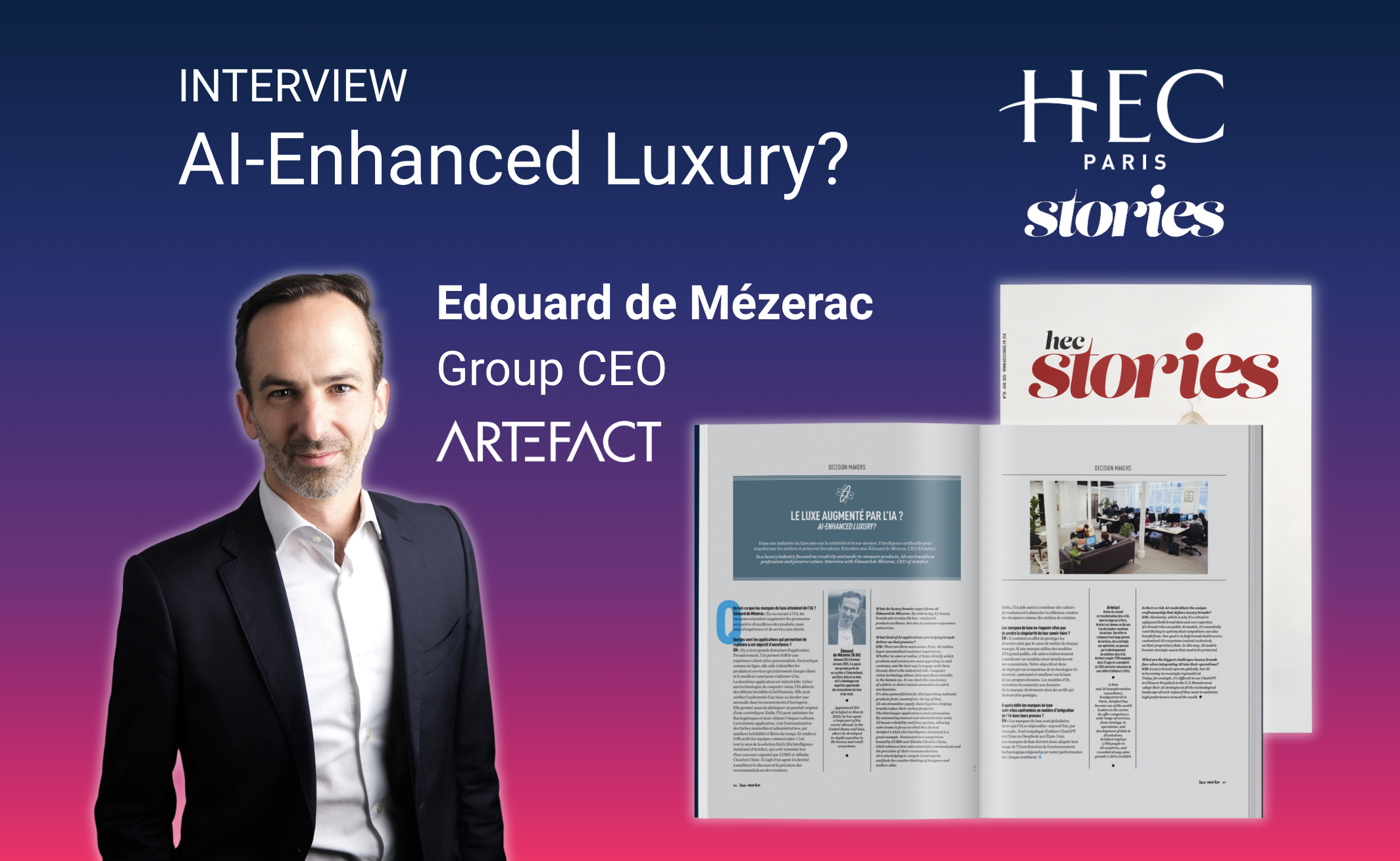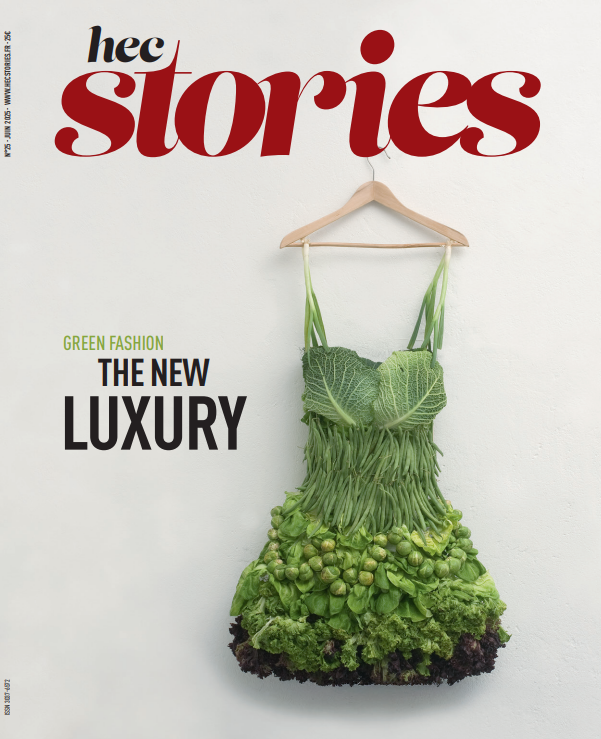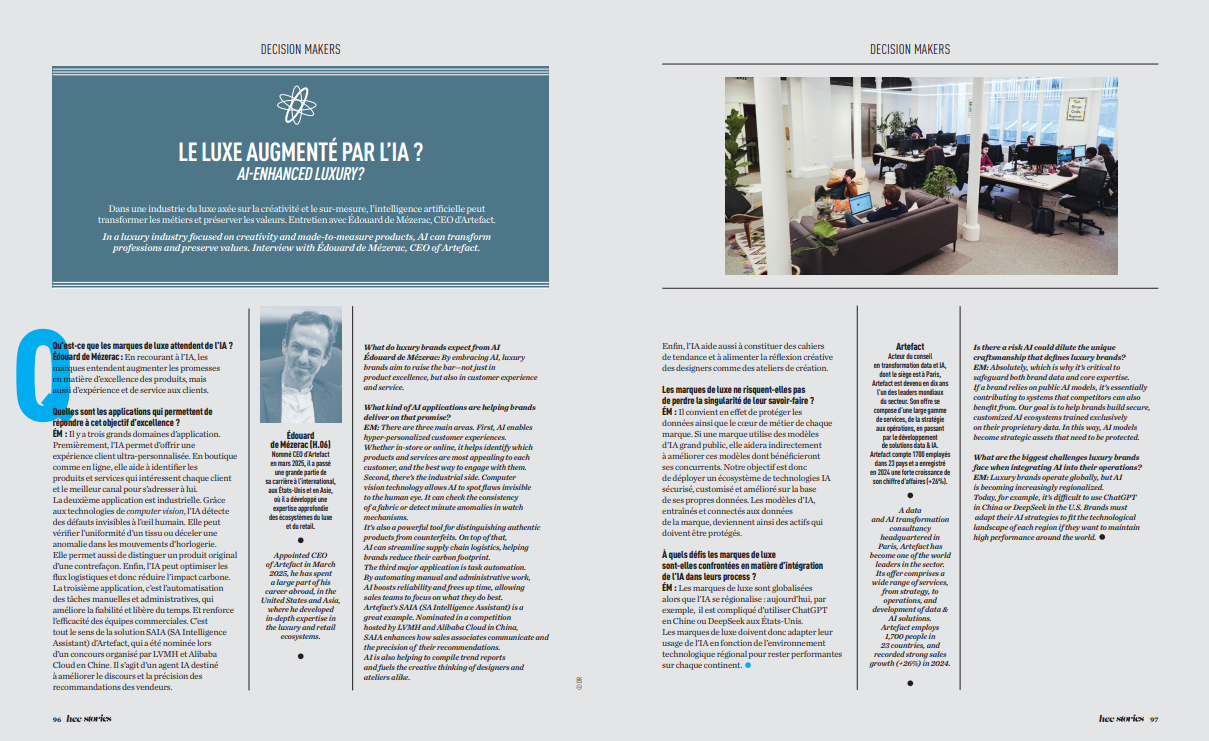In a luxury industry focused on creativity and made-to-measure products, AI can transform professions and preserve values. Interview with Édouard de Mézerac (H.06), CEO of Artefact.
Appointed CEO of Artefact in March 2025, he has spent a large part of his career abroad, in the United States and Asia, where he developed in-depth expertise in the luxury and retail ecosystems.
What do luxury brands expect from AI ?
Édouard de Mézerac (H.06) : By embracing AI, luxury brands aim to raise the bar not just in product excellence, but also in customer experience and service…
What kind of AI applications are helping brands deliver on that promise ?
There are three main areas. First, AI enables hyper-personalized customer experiences. Whether in-store or online, it helps identify which products and services are most appealing to each customer, and the best way to engage with them. Second, there's the industrial side. Computer vision technology allows AI to spot flaws invisible to the human eye. It can check the consistency of a fabric or detect minute anomalies in watch mechanisms. It's also a powerful tool for distinguishing authentic products from counterfeits. On top of that, AI can streamline supply chain logistics, helping brands reduce their carbon footprint.The third major application is task automation. By automating manual and administrative work, AI boosts reliability and frees up tim allowing sales teams to focus on what they do best. Artefact's SAIA (SA Intelligence Assistant) is a great example. Nominated in a competition hosted by LVMH and Alibaba Cloud in China, SAIA is designed to enhance how sales associates communicate and sharpen the precision of their recommendations. AI is also helping to compile trend reports and fuel the creative thinking of designers and ateliers alike.
Is there a risk that AI could dilute the unique craftsmanship that defines luxury brands ?
Absolutely, which is why it's critical to safeguard both brand data and core expertise. If a brand relies on public AI models, it's essentially contributing to systems that competitors can also benefit from. Our goal is to help brands build secure, customized AI ecosystems trained exclusively on their proprietary data. In this way, AI models become strategic assets that need to be protected.
What are he biggest challenges luxury brands face when integrating AI into their operations ?
Luxury brands operate globally, but AI is becoming increasingly regionalized. Today, for example, it's difficult to use ChatGPT in China or DeepSeek in the U.S. Brands must adapt their AI strategies to fit the technological landscape of each region if they want to maintain high performance around the world.

 BLOG
BLOG









